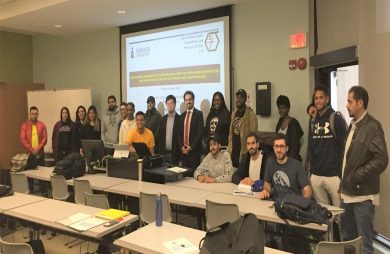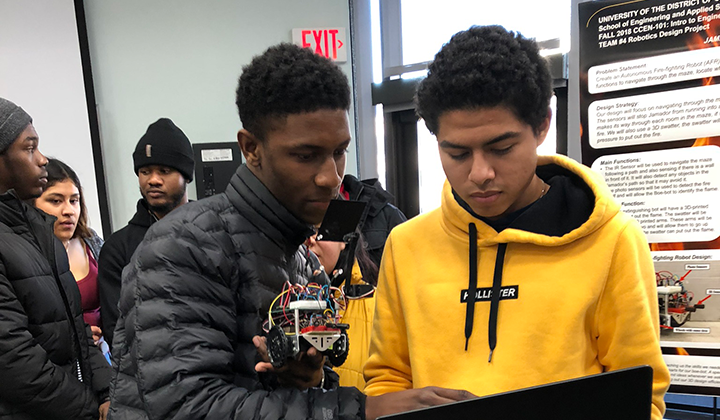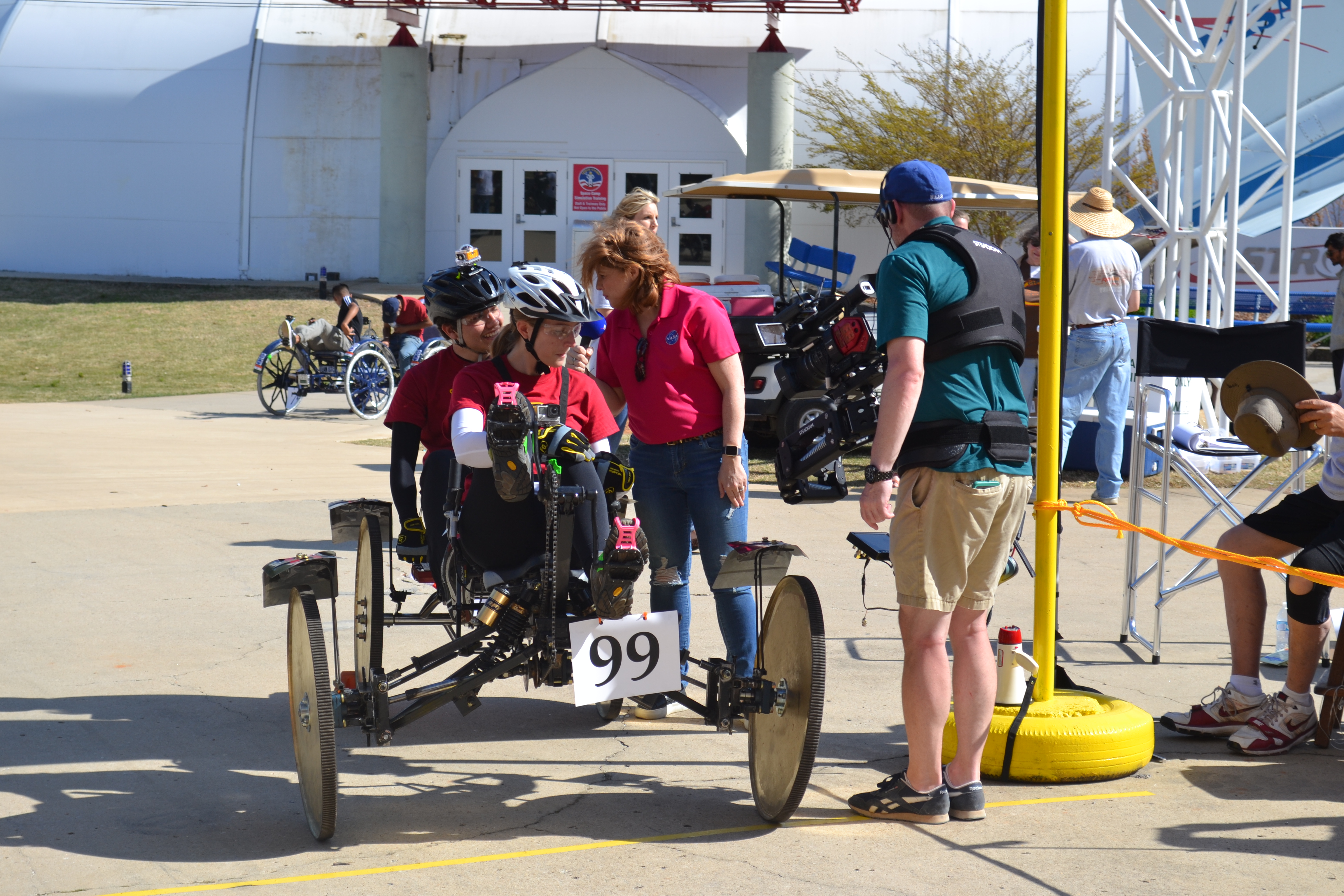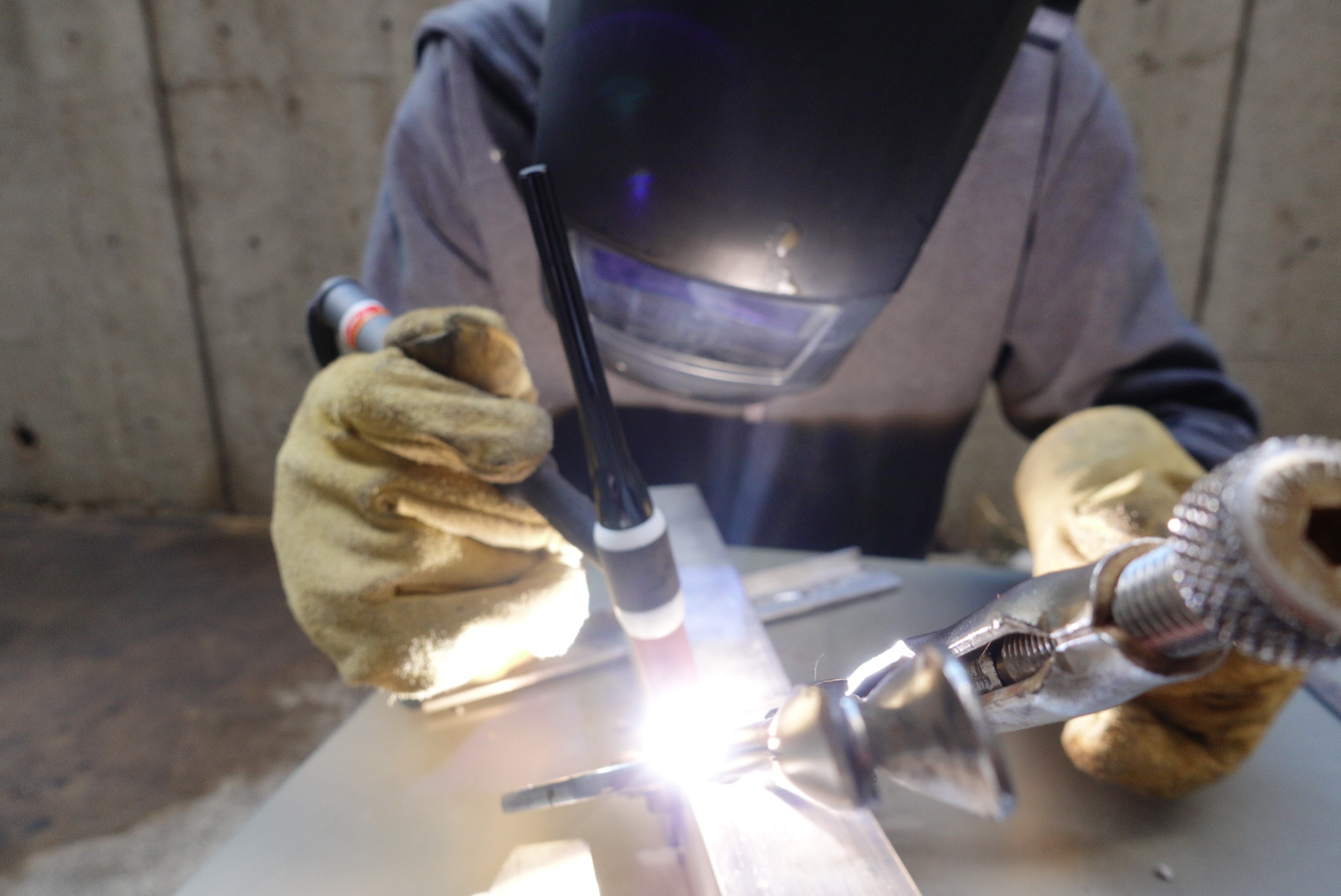RESEARCH Seminar Series: FALL 2019
The seminar series aims to provide a platform for research interaction and expose UDC faculty and students to a broad perspective on cutting-edge research and practice in engineering and applied science fields. CAM-STAR provides the researchers with an opportunity to develop their interpersonal skills, extend their network of research activities, share their latest research achievements, and set the stage for future research collaborations with distinguished CAM-STAR faculty and promising researchers.
EVENTS
Wednesday, October 30, 2019
Building 42, Room A09
4:00 to 5:00pm
Dr. Hessam Yazdani from Howard University
Developing Probabilistic ICME Models for Polymer Nanocomposites
 ABSTRACT: Advanced materials play a growing role in propelling the economic performance of major industrial sectors and the US prosperity and security, and this trend will accelerate as the 21st century further unfolds. Among many materials that have been proposed, developed, used, and evolved across different disciplines during the last few decades, polymer nanocomposites (PNCs) stand out thanks to their tunability, which makes it possible to change the constituents and the microstructure to impart multiple functions to the final product. The traditional approach to the design and development of PNCs involves educated guesses, a high degree of trial and error, laboratory and field experiments, serendipity, and incremental advances. This approach, however, is inefficient because PNCs feature an extremely wide range of compositions and strong interactions that occur across several scales of time, length, and complexity that make their processing-structure-statistics-property (PSSP) relationships complicated.
ABSTRACT: Advanced materials play a growing role in propelling the economic performance of major industrial sectors and the US prosperity and security, and this trend will accelerate as the 21st century further unfolds. Among many materials that have been proposed, developed, used, and evolved across different disciplines during the last few decades, polymer nanocomposites (PNCs) stand out thanks to their tunability, which makes it possible to change the constituents and the microstructure to impart multiple functions to the final product. The traditional approach to the design and development of PNCs involves educated guesses, a high degree of trial and error, laboratory and field experiments, serendipity, and incremental advances. This approach, however, is inefficient because PNCs feature an extremely wide range of compositions and strong interactions that occur across several scales of time, length, and complexity that make their processing-structure-statistics-property (PSSP) relationships complicated.
The successful integration of experimentation and physics-based theoretical models with computer simulations has recently yielded the integrated computational materials engineering (ICME) paradigm that has opened a window to building PSSP relationships in existing materials and accelerating the design of new materials with a short time to market. This talk will present the speaker’s recent research on developing ICME models for PNCs using multiscale characterization and simulation methods.
 BIOGRAPHY: Dr. Hessam Yazdani is an assistant professor in the Department of Civil and Environmental Engineering and the Director of the Stout Infrastructure, Geotechnics, and Materials (SIGMa) Lab at Howard University. He specializes in experimental and computational materials science and engineering, geotechnical engineering, risk and reliability analysis, machine learning, and nature-inspired optimization. Dr. Yazdani’s interdisciplinary research centers on fostering sustainability and resilience in civil infrastructure through addressing the geotechnical aspects of renewable energy systems, designing high-performance, multifunctional, 3D-printable materials for construction, optimizing geotechnical and structural systems, and estimating the performance of engineering systems using machine learning techniques, Dr. Yazdani has authored/co-authored over 50 publications in books, peer-reviewed journals and conference proceedings and is a recipient of has received several awards including the 2013 DFI Best Student Paper Award, the 2013 ASTM International Project Grant, and the 2017 and 2019 “Faculty of the Year” of the ASCE Howard University Chapter. Dr. Yazdani received his BSc and MSc in civil/geotechnical engineering from the University of Kerman, Iran, and his PhD from the University of Oklahoma in 2015.
BIOGRAPHY: Dr. Hessam Yazdani is an assistant professor in the Department of Civil and Environmental Engineering and the Director of the Stout Infrastructure, Geotechnics, and Materials (SIGMa) Lab at Howard University. He specializes in experimental and computational materials science and engineering, geotechnical engineering, risk and reliability analysis, machine learning, and nature-inspired optimization. Dr. Yazdani’s interdisciplinary research centers on fostering sustainability and resilience in civil infrastructure through addressing the geotechnical aspects of renewable energy systems, designing high-performance, multifunctional, 3D-printable materials for construction, optimizing geotechnical and structural systems, and estimating the performance of engineering systems using machine learning techniques, Dr. Yazdani has authored/co-authored over 50 publications in books, peer-reviewed journals and conference proceedings and is a recipient of has received several awards including the 2013 DFI Best Student Paper Award, the 2013 ASTM International Project Grant, and the 2017 and 2019 “Faculty of the Year” of the ASCE Howard University Chapter. Dr. Yazdani received his BSc and MSc in civil/geotechnical engineering from the University of Kerman, Iran, and his PhD from the University of Oklahoma in 2015.
Event is sponsored by NSF Award 1818649 and NASA Center for Advanced Manufacturing in Space Technology & Applied Research at UDC (CAM-STAR) Grant.



